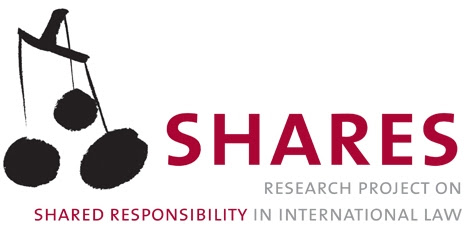Posted by: Irving Emma
With Malaysia Airlines Flight MH370 being officially declared lost at sea, and as the international search efforts hone in on the location of the aircraft, it is time to asses not only what this teaches us about aviation safety, but also the consequences of shared responsibility for international search and rescue operations.
Malaysia Airlines Flight MH370 went missing on the 8th March, losing communication around an hour after taking off from Kuala Lumpur on route to Beijing. The fact that the airplane was missing for a number of hours, and that its communication devices were mostly switched off, meant that from the outset it was unclear where it might have come down, if indeed it had come down at all. The initial suggestions were that the plane was off the coast of Vietnam, or further out in the China Sea. This was followed by information that it had made a sharp turn towards the Straight of Malacca, and thereafter might have followed either a broad northern or southern corridor.
On the surface, the international search effort appeared to be a good example of different countries and agencies working together. The Malaysian authorities are purportedly coordinating the search effort, which involves a number of countries as well as agencies such as the FBI and Interpol. However, dig a little deeper and the cracks begin to emerge. Not only was the search effort hampered by persisting regional tensions and mistrust, which left some countries, China in particular, reluctant to share information, but the legal framework is ill-adapted to the shared responsibility context.
The duty to render assistance to persons in distress at sea is well established, both under customary law and under treaty law (Article 98 UNCLOS is one example). There are too, provisions on coordination between States in search and rescue operations. The International Convention for the Safety of Life at Sea 1974 (SOLAS Convention)[1] provides that governments must coordinate search and rescue services in their areas of responsibility, as well as in its own territorial sea.[2] The Convention demarcates which State has responsibility over which areas of water, including areas of the high seas. Similarly, the International Convention on Maritime Search and Rescue 1979 (SAR Convention) also links coordination responsibility with territory. These provisions therefore, are designed for situations where it is clear in which State’s area of responsibility the vessel or aircraft came down. Contrastingly, where an accident occurs in international waters, the International Civil Aviation Organisation (ICAO), which is part of the UN, has indicated that the State of the airline takes the lead. Both approaches however, still require knowledge of where the plane crashed, as it is this that determines the State with primary responsibility for coordinating the search. What this means for instances of shared responsibility, as with flight MH370, is that the legal framework for search and rescue can delay and hamper efforts by failing to identify a clear leader.
This need to link the crash site to a particular territorial area has also delayed efforts in setting up a formal investigation into the crash under the ICAO framework. The lack of formal powers for Malaysia under this framework means that it has no exclusive control over information, and no ability to centralise evidence from different sources, such as satellite images and eyewitness accounts. Rather, it must rely on the goodwill of other States involved, which has led to delays in the conveyance of information.
There has been then, a lack of a central point where all involved parties could come together and pool the information gathered by each. In the first stages of the search, it took a number of days for China to release satellite images of what they believed to be the plane. While these images turned out to not be related to the search, one might wonder whether a freer exchange of information might have reduced the time it took for the current state of affairs to be arrived at.
All the above being said, credit must be given where credit is due. Despite the massive search area, as well as the sheer number of entities involved, the search has been relatively well coordinated, and delays in finding the wreckage are now mainly due to poor weather. However, a clearer legal framework for situations involving multiple States, and for when the whereabouts of the plane is unclear, would surely contribute to more effective search and rescue operations.
